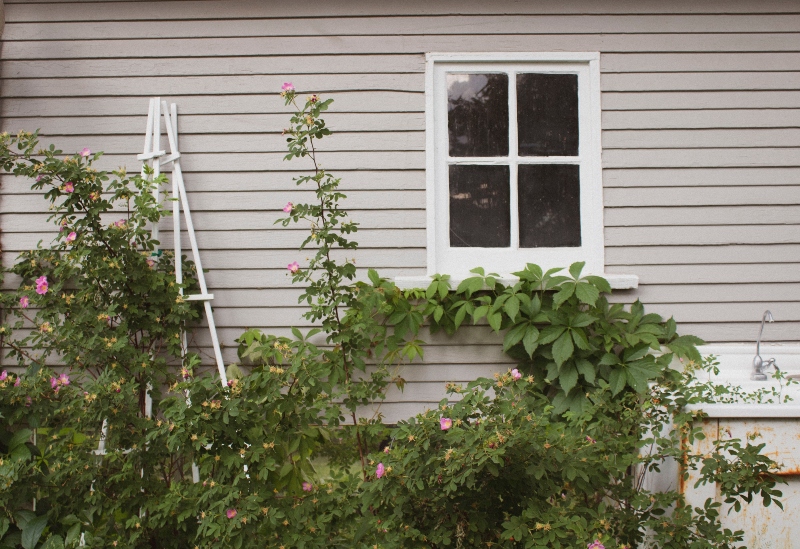
There's nothing worse than looking into your garden and seeing the ultimate culprit - the common garden weed. There's no denying that weeds are a nuisance.
From robbing your cared-for plants of essential water and nutrients to hogging the sunlight, garden weeds can create a real eyesore in your outdoor space. So, these are the most common garden weeds you should keep an eye out for in the UK.
1. Nettles
You'll be able to identify this pesky garden weed from its inevitable sting! Nettles are perennial and annual types of garden weeds. This means that they can grow yearly through the germination of a nettle's seeds, or they can grow year after year.
The perennial nettles are the hardest to control, as they produce elongated taproots which makes removal and control difficult. They are especially difficult to control where the phosphate level within the soil is high, as they can prove to be troublesome in newly cultivated soil.
You may wish to remove nettles from your garden due to the sting they can cause if you're in contact with one.
2. Japanese Knotweed
Japanese knotweed is a terror of a garden weed that is extremely rife within the UK. Since the introduction of Japanese knotweed in the Victorian era, this common garden weed has become almost unstoppable!
Japanese knotweed is well known - and almost, feared - for the harmful damage it can do to properties, gardens, and the wildlife surrounding it. This is due to its ability to rapidly spread across areas. Additionally, its bamboo-like stems can also reach heights of up to 2 metres in an attempt to rob sunlight and nutrients from your other plants!
However, what evokes the most fear, is that the presence of Japanese knotweed can severely affect the value of your property.
If you'd like to check whether you have Japanese knotweed present on your property, take a look at our Japanese knotweed identification page, or request a FREE Japanese knotweed survey where we will take a look for you.
3. Bindweed
Bindweed roots can grow up to 3 metres long, and the seed can exist for up to 30 years within your soil. The most persistent type of bindweed is hedge bindweed which boasts high climbing stems with trumpet-shaped white flowers. These flowers, although beautiful, can cause further issues in your garden. As they are so brittle, if the smallest piece falls into your soil, it could very well develop into a new plant.
They can grow to be extremely dense, reducing the reach of sunlight to your other garden plants. If this continues, bindweed could very well contribute to the destruction of the other plants around it.
Bindweed can cause a problem for many avid gardeners, as it has extremely stubborn roots. The roots of bindweed can grow through the roots of other plants, cutting off the source of their nutrients in its tracks.
4. Common Chickweed
It's all in the name with this one - common. The common chickweed is all but too familiar to UK gardens.
One of the main issues with common chickweed is that it can distribute seeds extremely quickly, with each plant holding up to 150,000 seeds at once. This means it can spread and grow rapidly, causing issues that UK gardeners cannot keep up with.
You'll find common chickweed making the most of your damp soil in spring and autumn, so it's handy to know how to identify common chickweed. To identify common chickweed, look out for small, star-like white flowers and oval-shaped leaves. The leaves have also been described as egg-shaped and they are usually spaced evenly across the stems.
5. Common Ragwort
If you have horses, livestock, or other mammals in your garden, then you'll definitely want to be on the lookout for common ragwort. Each common ragwort plant is capable of producing 50-60,000 seeds and they spread extremely easily.
Ragwort contains a variety of toxins under the name of pyrrolizidine alkaloids, and this can cause extreme liver poisoning in animals. Also, if eaten in sufficient quantity, any part of the ragwort plant could cause irreversible kidney failure in dogs.
To identify common ragwort, look out for a tall plant of up to 3ft tall with flat-top clusters of yellow flowers. It also has a base of leaves that look deeply cut and shark-tooth-like.
Weed Removal Services
At Total Weed Control, we're proud to offer a garden clearance service to get rid of any pesky weeds within your garden or outdoor area.
Not only will we clear any nuisance weeds for you, but we will also offer expert advice to ensure that they do not return.
With over a decade of experience in the weed removal industry, we can assure you that we will provide an effective and sustainable solution for your weed removal needs.
Get in Touch FREE Garden Survey
